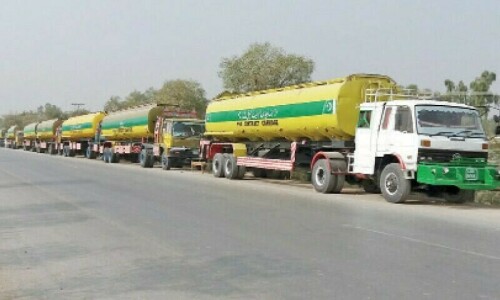PARIS: Corruption, fraud and money-laundering cost poor countries a total of $1.0 trillion a year, the anti-poverty organisation ONE said in a study released on Wednesday.
The group, founded by U2 rock group singer Bono, said the misuse of funds resulted in $38-64 billion a year in uncollected taxes alone.
This in turn cost 3.6 million lives a year that could be saved if the missing money were wisely invested, non-government organisation ONE estimated.
“It is nothing short of a trillion-dollar scandal,” said the report, recommending action on four fronts.
The study was published before finance ministers from the G20 group of leading countries meet in Australia on September 20 and 21.
To put the $1tr (750bn euros) in perspective, ONE said that it was equivalent to the annual profits all the 86 biggest publicly quoted companies in the world.
It blamed the loss on “a web of corrupt activity that involves shady deals for natural resources, the use of anonymous shell companies, money-laundering and illegal tax evasion.” “Massive sums are being taken out of developing countries’ own budgets and economies, preventing them from financing their own fight against extreme poverty, disease, and hunger,” the study said.
If policies were put in place to combat corruption by means of financial secrecy, deals on natural resources and money-laundering, the cost of corruption could be reduced “dramatically”, the report said.
The head of ONE in France, Friederike Roeder, said that the untapped funds could be “invested in health care, food security and essential infrastructure, and thereby save millions of lives.” The organisation listed four fronts where it said action could be taken.
First, G20 leaders who will meet in Brisbane, Australia, in November, should ensure that the ownership of companies and trusts be made public to prevent them from being used to launder funds for the benefit of anonymous criminals and corrupt individuals, ONE said.
It also argued that natural resources companies should be forced to publish full details of their activities to discourage the theft of resources from poor populations.
Exchanges of tax information should be automatic, to enable developing countries to collect taxes due.
Governments should also be obliged to publish full and open accounts so that citizens could hold them accountable for money received and how it is spent, the report said.
Published in Dawn, September 4th, 2014











































